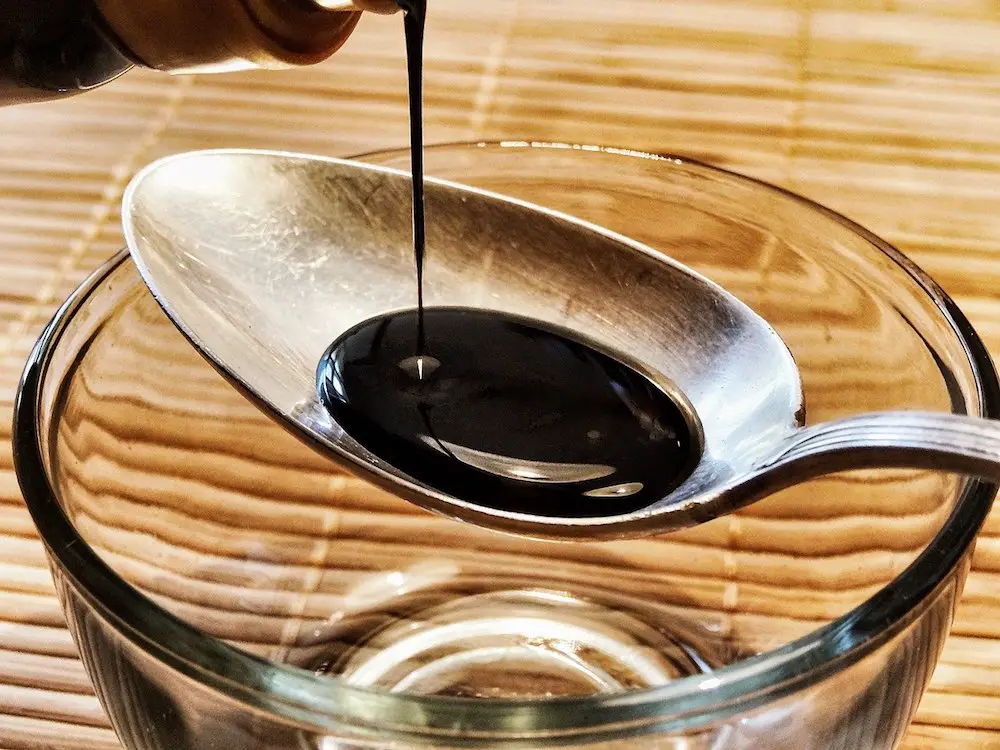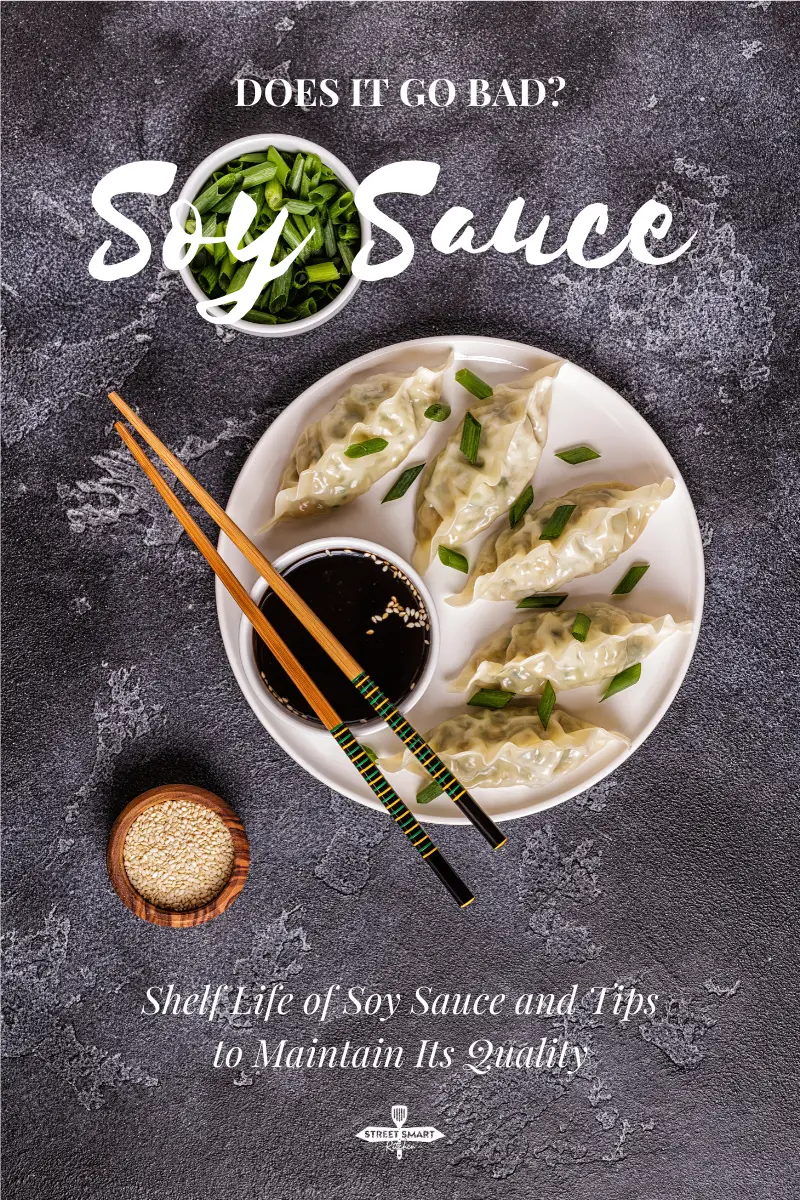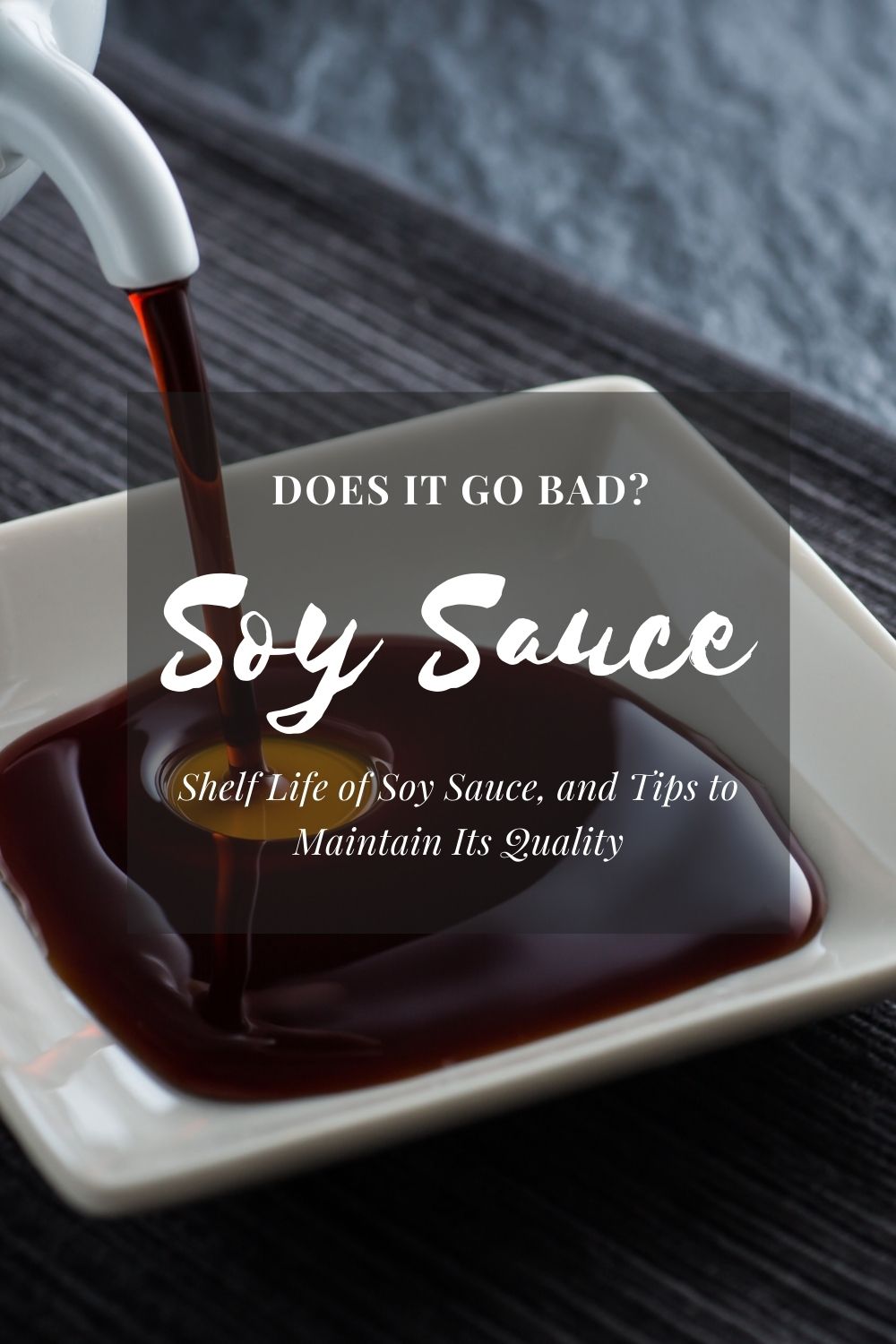Does Soy Sauce Go Bad? The Shelf Life of Soy Sauce and Tips to Maintain Its Quality
Does soy sauce go bad? Generally no. When properly stored, its shelf life can go past beyond its best-before date. Soy sauce is naturally loaded with sodium, and it’s not a good place for microorganisms. That’s why it’s safe to consume even after several years with proper storage.

[thrive_leads id=’13056′]
Soy sauce is often used in Asian dishes for a salty flavor. You can mix it with a dipping sauce or salad dressing for Roasted Cauliflower with Soy Ginger Sauce or use it as a marinade for your favorite meat dishes like Pork Ribs. It’s great for barbeque and burger marinade too!
You probably have it in your kitchen on a regular basis. Read along to learn more about soy sauce shelf life and FAQs about it.
How long does soy sauce last?
The answer will depend upon the type of soy sauce and how you store it.
Regular soy sauce
Soy sauce is made up of soybeans and roasted wheat mixed together and inoculated with Aspergillus mold or koji. It can be Chinese-style or Japanese-style. Unopened soy sauce can last indefinitely in your pantry. An opened bottle can retain its best quality in your kitchen for six months and can last up to two to three years when refrigerated.
Shoyu and Tamari
Shoyu is simply the name for the Japanese-style soy sauce. It’s usually made with 50% fresh soy and 50% wheat, which gives a sweeter and more refined flavor compared to its Chinese counterparts. It can be light (usukuchi) or dark (koikuchi).
Tamari, also Japanese, is originated as a by-product of miso production. It’s made with soybeans, resulting in a flavor similar to Chinese style. It’s also known as gluten-free soy sauce.
Shoyu and tamari are naturally brewed and fermented and can go bad faster than regular soy sauce. If unopened and stored in a cool and dry place, they can last up to two years. Once opened, their peak flavor can last for only around three months, but they are still safe to use for a lot longer.

The ingredients of the different types of soy sauce and the processes of brewing, fermenting, pasteurization, and stabilization all contribute to making it resistant to spoiling. The natural fermentation process usually takes a few months; beware of some brands that add preservatives and chemicals to speed up the process.
How can you tell when it is bad?
Soy sauce can have changes in color and flavor, but these are not an indication that it’s harmful to consume.
It will become darker and stronger in flavor and aroma over time due to the oxidation process. You can experience peak flavor when you first open the bottle. As with most food, when mold starts to develop, that’s the time to discard it.
[thrive_leads id=’13056′]
To ensure food safety, examine your sauce. If it’s stored without a top or lid, it’s contaminated. Try pouring some of it into a bowl. If there are any floating particles, it is spoilt. Foul odor upon opening the bottle is also an indication that it has gone bad.
Can expired soy sauce make you sick?
Condiments usually have a best-before date or best- by date instead of the expiration date, which means you can still use your soy sauce even after that date has lapsed if it is stored properly. The best-before date is just a guide to how long the product will be at its peak quality.
It won’t make you sick as long as it’s not contaminated, but the taste might be stronger. As mentioned above, store it in the refrigerator to retain its peak flavor longer.

Does soy sauce go bad if not refrigerated?
No. Even after opening, it doesn’t require refrigeration. You can store it at room temperature. But if you want to keep its flavor a little bit longer, refrigerate it.
Because of its high sodium content, an opened bottle will keep just fine for a few months at room temperature. According to manufacturer Kikkoman, it won’t spoil as long as no water or other ingredients are added—even if it’s not refrigerated.
However, proper storage is always advisable.
How to store it properly
If not refrigerated, soy sauce is best stored in your pantry or any other cool and dry area. Keep it away from the dishwasher or stove. The heat can potentially ruin any food or condiments placed near these appliances.
After breaking the seal on a bottle, store it at room temperature, in the original bottle with a tight screw lid. If you don’t use it frequently, you can store it in the refrigerator to retain its flavor for a longer period. For regular use, just keep it in your kitchen within easy reach.
Looking for a new and exciting dish apart from the usual? Try these StreetSmart recipes.
- Roasted Asian Cauliflower with Soy-Ginger Sauce (Vegan)
- Cold Soba Noodles In Hot Chili Oil Sauce
- Shanghai-Style Braised Pork Belly with Hard-Boiled Eggs
- Korean Beef Lettuce Wraps with Kimchi
- Spicy Chinese Noodles
- Pan-Fried Shanghai Noodles
- Cumin Lamb Stir Fry
- Spicy Chicken Zucchini Noodles

[thrive_leads id=’13056′]
About the Author
Sharon Chen is an Integrative Nutrition Health Coach and author of the Complete Sous Vide Cookbook. She believes food not only brings healing but also connection. As the creator of StreetSmart Kitchen, she aims to make meal prep easier than ever and help you find balance, ease, joy, and simplicity in the kitchen as you improve your well-being.



